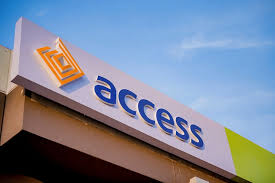While arguing his originating summons before the Federal High Court at Ibadan on Monday, Sanusi informed the court that he operated a savings account with Access Bank Plc.
He said that while going through his account he discovered that the bank was deducting more than N50 as an electronic levy stipulated by the Finance Act, 2019.
“What is provided in the Finance Act is that banks should deduct N50 one-off for transactions above N10,000.
“I noticed that the bank deducts N100, N250 and so on from my account as FGN electronic levy,” the bank customer said.
Sanusi told the court that any deduction on customers’ accounts must be subjected to the Central Bank of Nigeria (CBN) guidelines 2020, and other Financial Institution Acts.
He pointed out that these guidelines remained the only law allowing banks to make deductions from customers’ accounts.
“The court needs to determine whether or not it is lawful for the defendant to make unauthorised deductions from my account in favour of FGN or another third party than the one allowed under the CBN guidelines and Finance Act for bank charges,” Sanusi said.
He went on to inform the court that he relied on his filed affidavit, nine exhibits and a written address in support of his originating summons.
Sanusi then urged the court to grant all his prayers.
He asked it to restrain Access Bank from making further deductions on his account and reverse the monies deducted unlawfully from his account from March 27, 2020.
”This should be until judgment is delivered in the suit.
“Court should also order the bank to pay N100 million to me as exemplary damages for wrongful deductions it made in favour of FGN without my authorisation,” Sanusi said.
In his reply, the counsel to Access Bank, Mr Ahmed Adeleke, informed the court that he had filed a counter-affidavit, attached exhibits and a written address to argument his case.
He told the court that the bank reviewed the plaintiff’s three months’ statement of account between March 1, 2020 and May 29, 2020 to justify the deductions made.
Adeleke said the bank never charged more than the amount stipulated by the law going by the plaintiff’s transactions within the months under review.
He then urged the court to discountenance the plaintiff’s case with substantial cost.
Justice Uche Agomog adjourned the case until Nov. 12 for judgment. (NAN)










